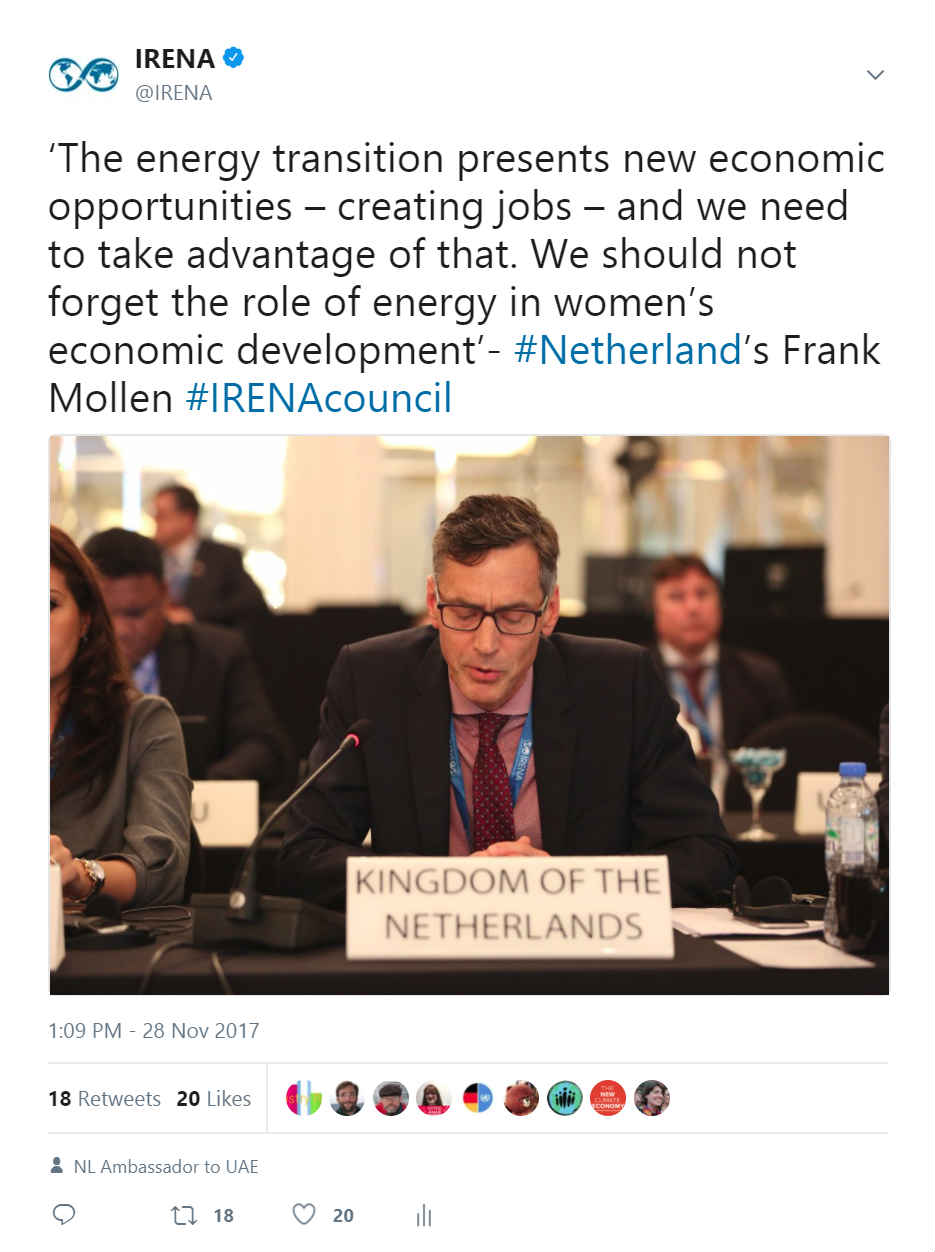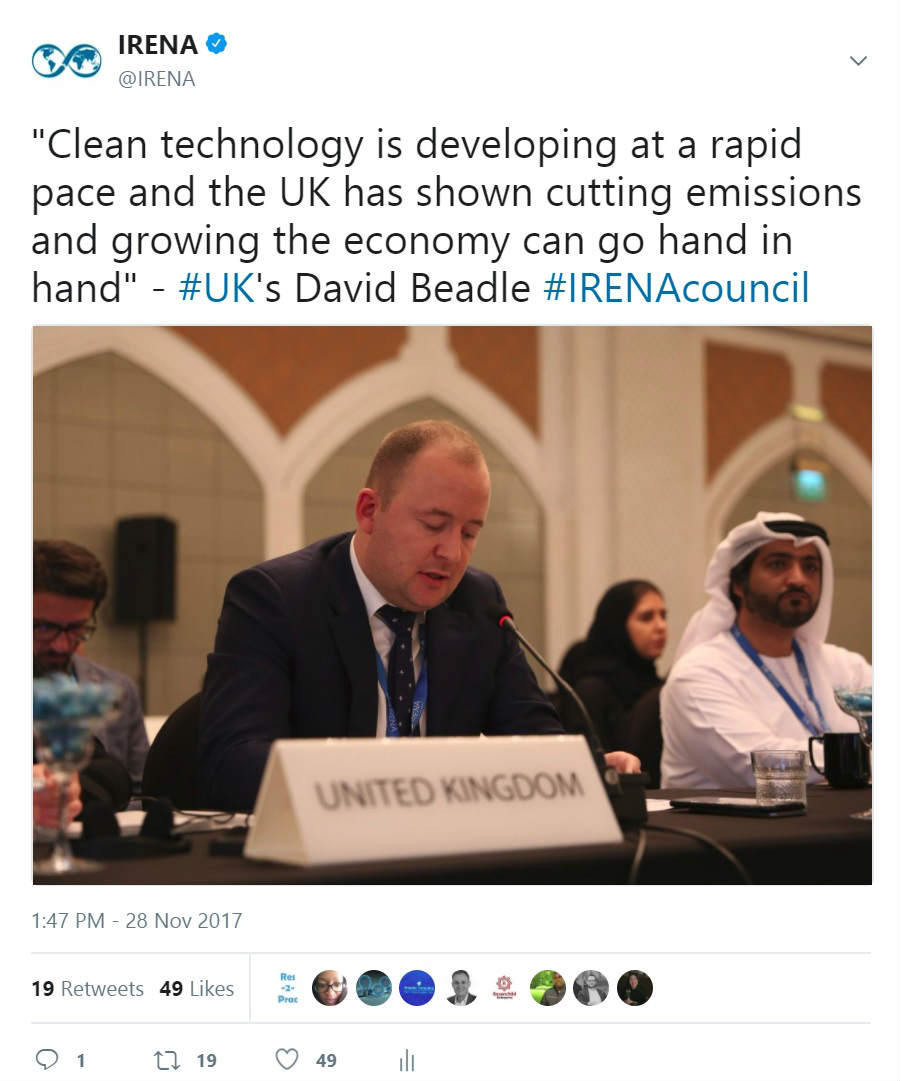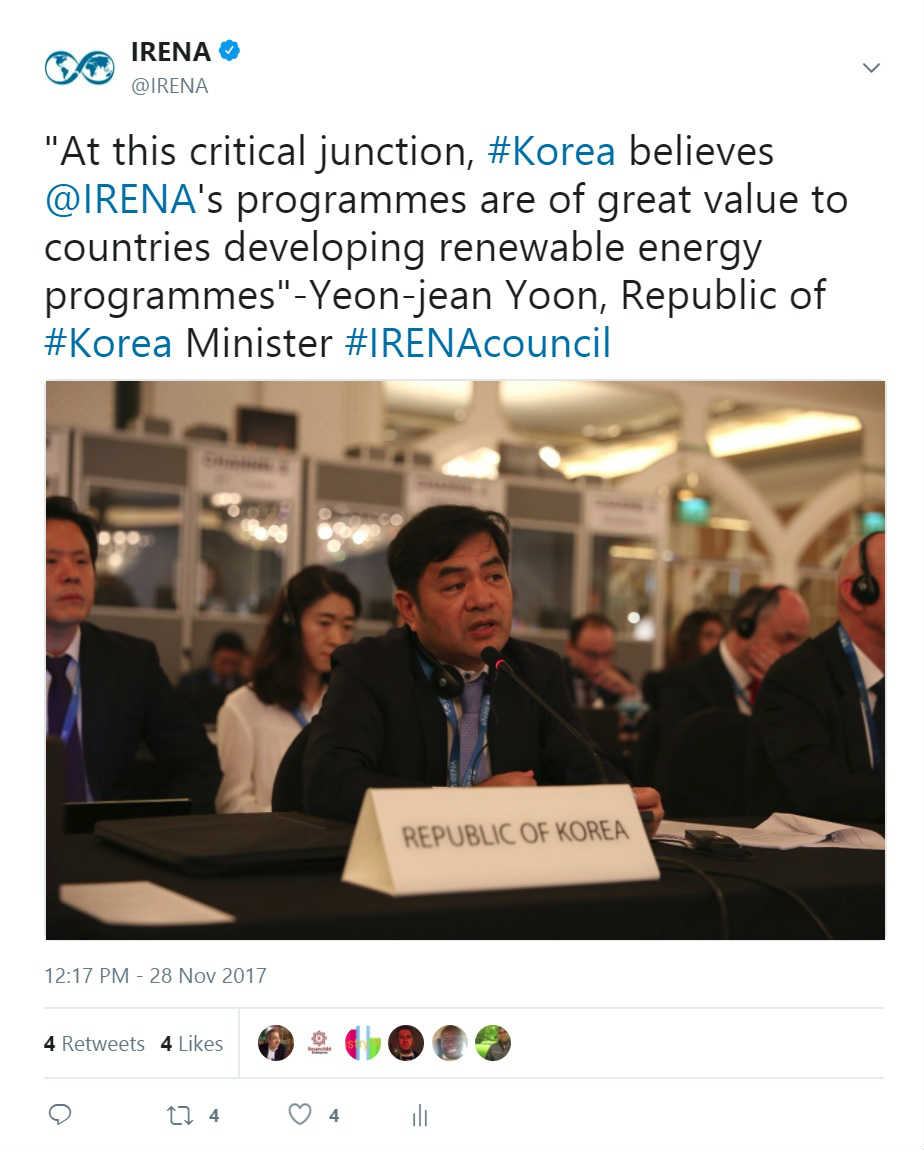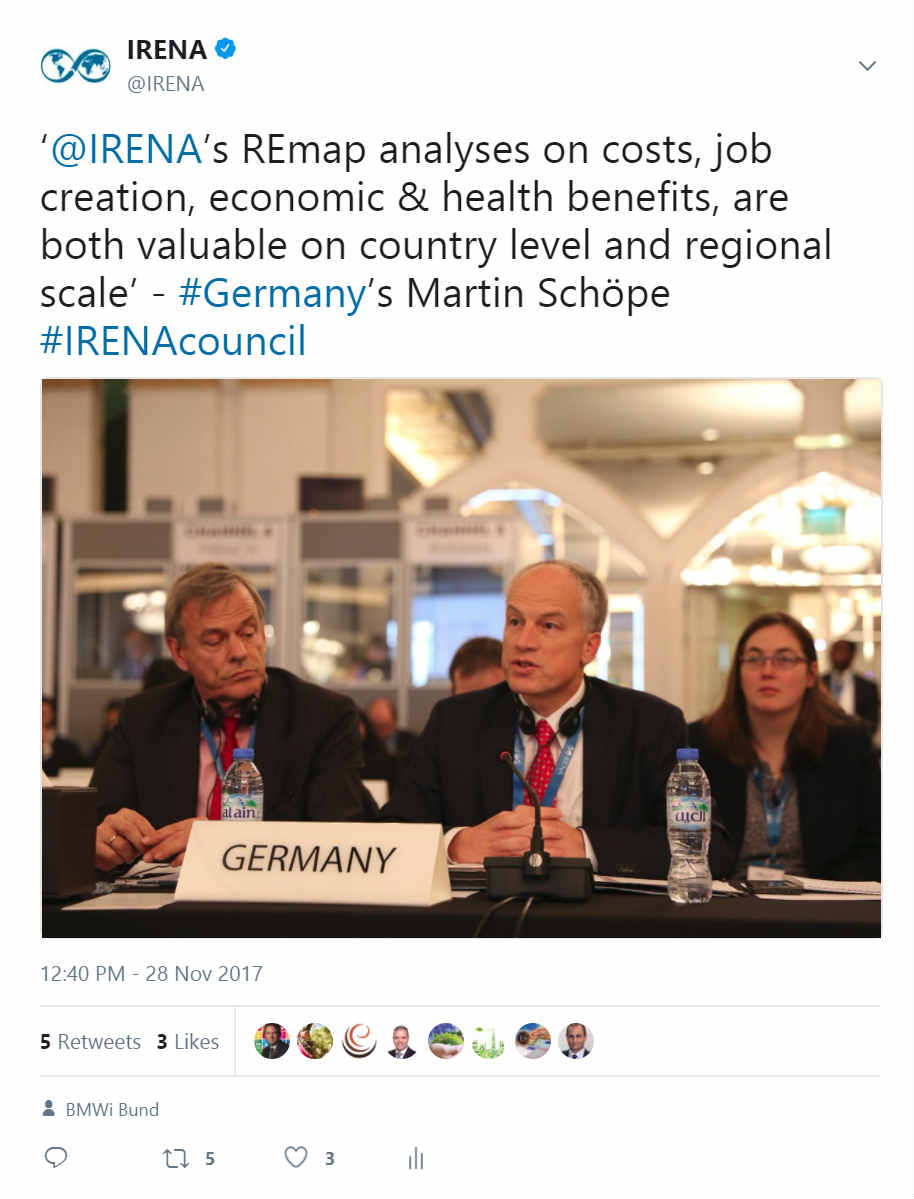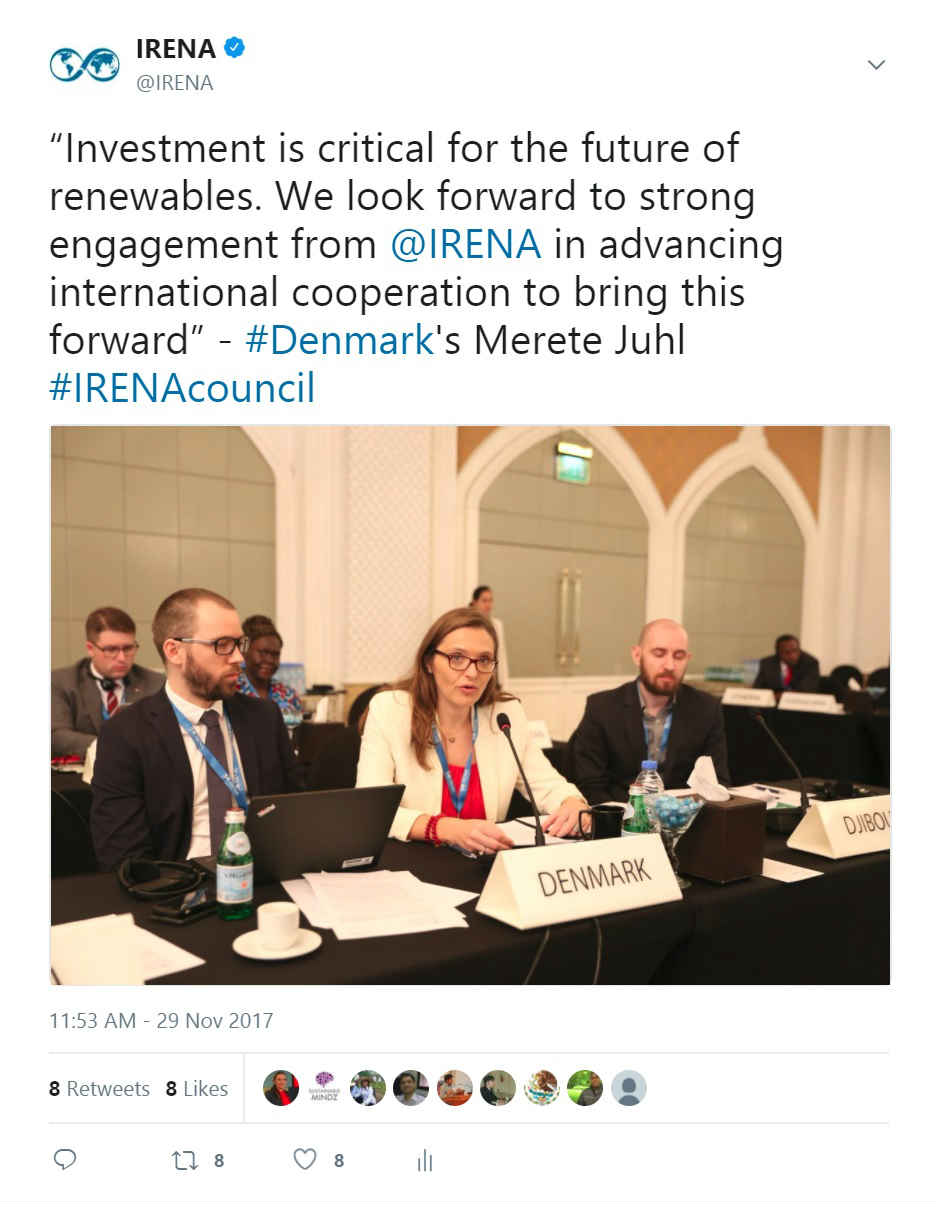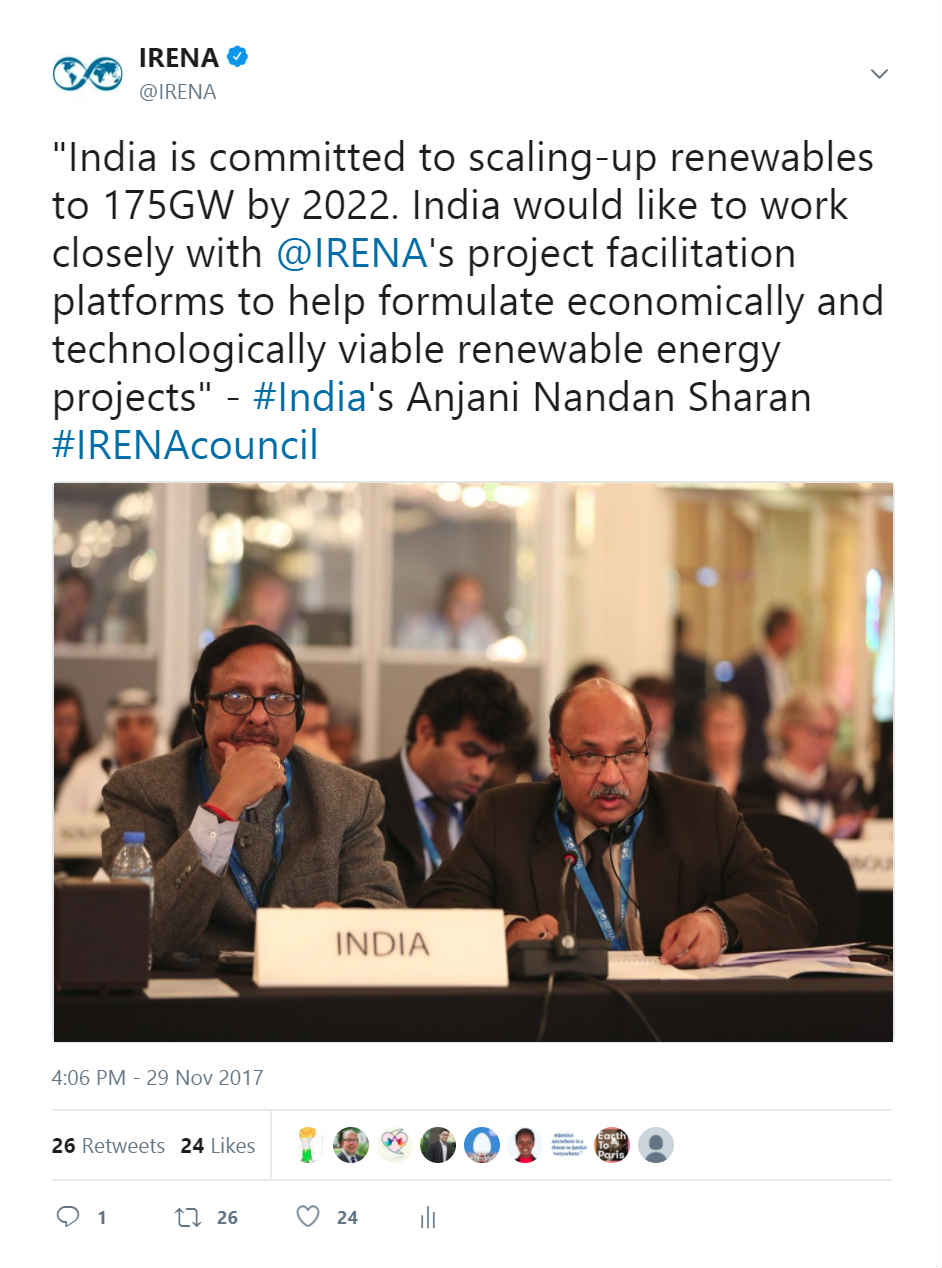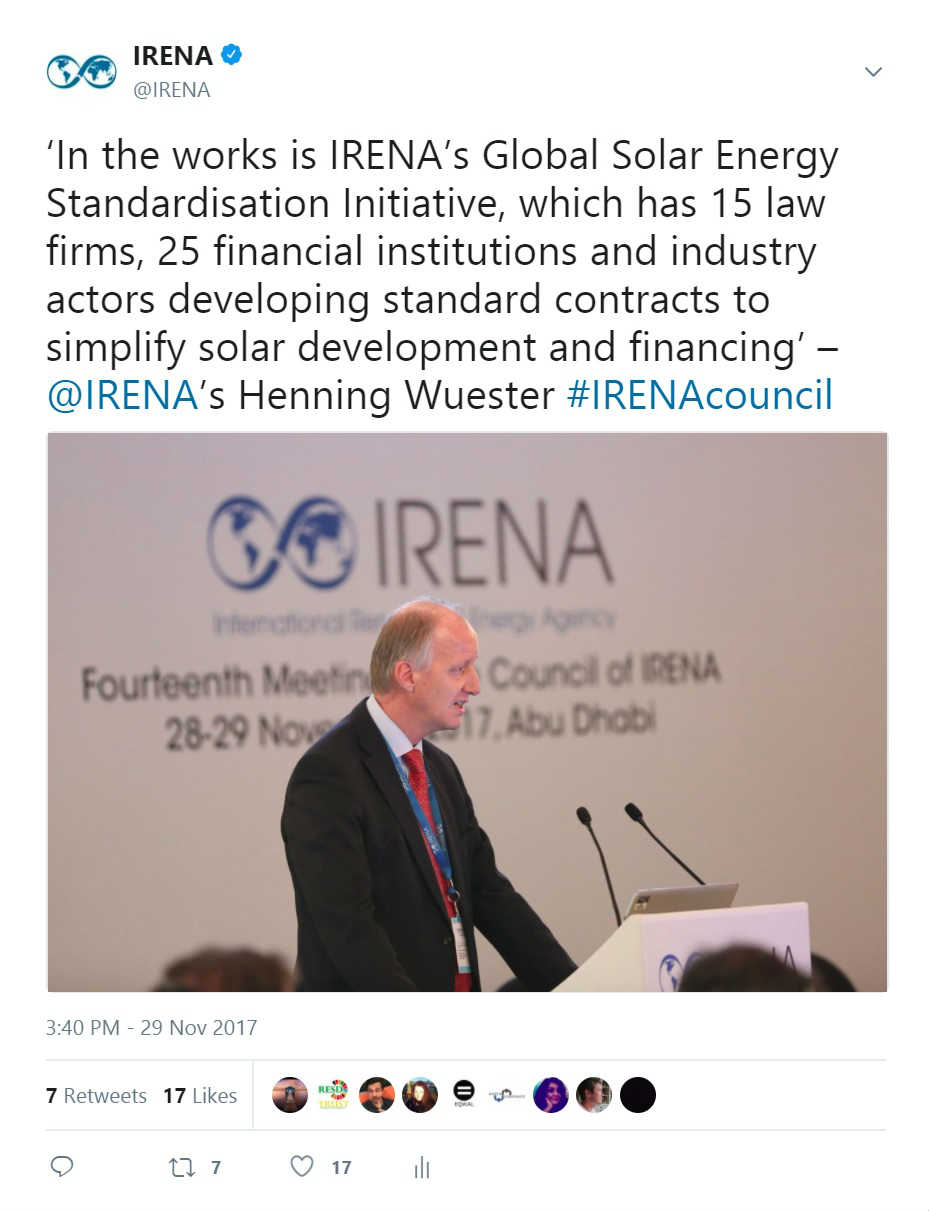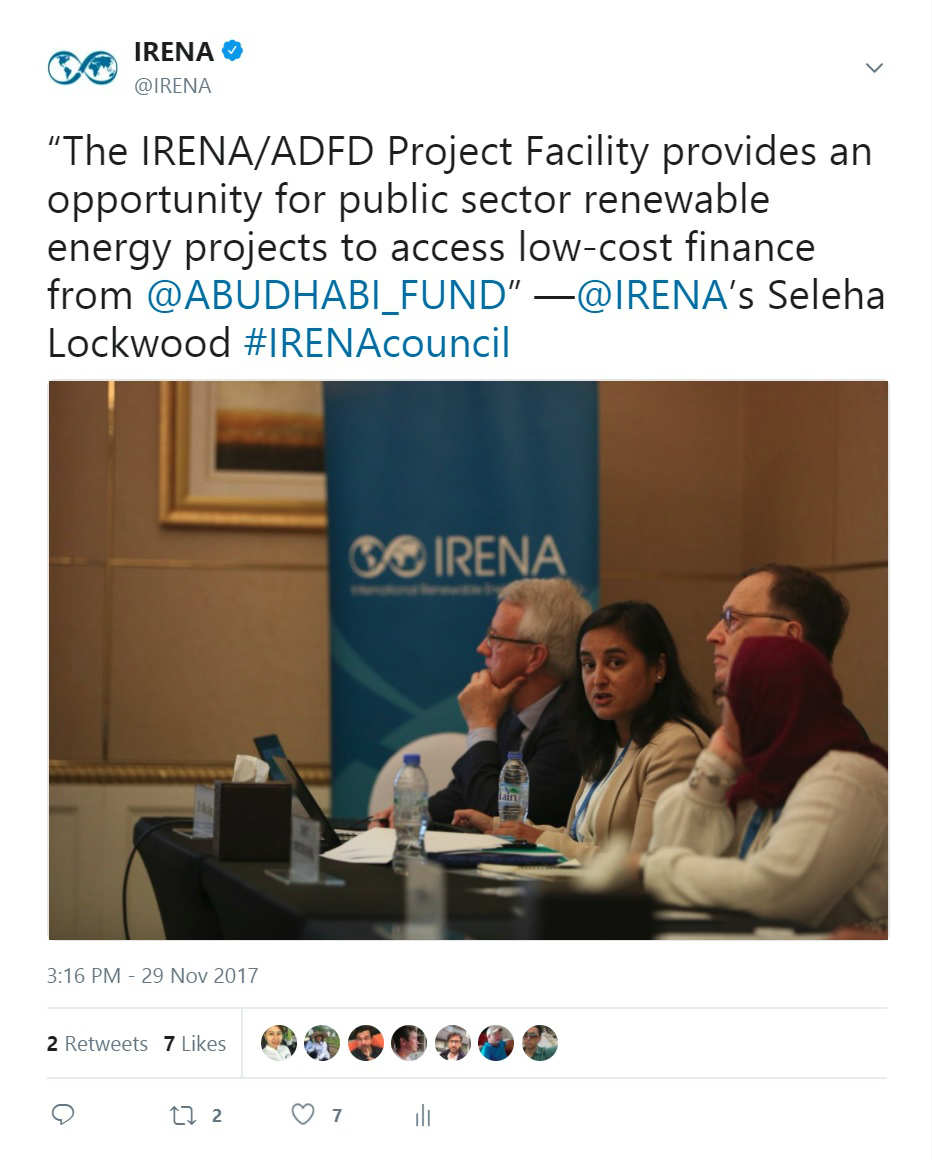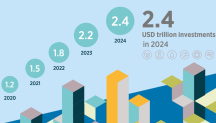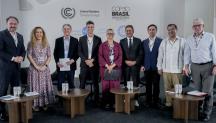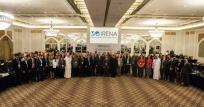

IRENA's 14th Council Reinforces Need for More Action
Newsletter
Two things characterized the Fourteenth Meeting of the IRENA Council: The first was a clear sense of collective determination to build on the momentum of the global energy transition. The second was a redoubling of commitments to the work of the International Renewable Energy Agency (IRENA) as a catalyst for that process.
There was a strong sense among the over 300 attendees representing 115 IRENA Members of the need to strengthen cooperation in pursuit of a low-carbon future. The Council, which meets twice annually to facilitate cooperation among Members, oversee implementation of IRENA’s work programme and complete substantive preparations for the Agency’s annual Assembly, provides an important mechanism for this.
In his opening remarks, IRENA Director-General Adnan Z. Amin underscored the urgency of this task: “An energy transformation of a scale and reach that few would have envisaged a few years ago is reshaping the way energy is produced, distributed and consumed. The challenges this raises and the opportunities it presents call for strengthened international cooperation at all levels.”
China, re-elected as Council Chair for the second time and represented by Mr. Zhi Guo, Chief Economist of China’s National Energy Administration, said that it sought to further encourage a “revolution in energy production and consumption” that would demonstrate the viability of renewable energy technologies as a “substitute energy source” for large-scale power generation. The country's recent pledge to invest a further USD 360 billion in renewables by 2020 is evidence of that commitment.
During discussions about the Agency’s Medium-Term Strategy, Council members noted that the global energy landscape has undergone a dramatic transformation since IRENA's foundation in 2009. This presents an opportunity to reassess the needs of Members as the industry enters a new phase of transformation, defined by socioeconomic benefits.
Going beyond power generation, and doing more to integrate renewable technologies into the transport, heating and cooling sectors was a key element of discussions, with the Director-General pointing out that, “While great progress is underway in the power sector, attention can be turned to the relatively untapped potential that exists to integrate renewable energy into end-use sectors such as transportation, heating and cooling.”
Members also covered increasing the share of renewable energy through nationally determined contributions — the actions countries plan to undertake to reduce carbon dioxide emissions and achieve the Paris Agreement’s climate objectives — and scaling-up renewables deployment through effective project facilitation. This is echoed in the findings of a recent IRENA report, which identifies a gap between national renewable energy plans, actual deployment progress and the targets set within the global climate framework.
Korean Minister Yeon-jean Yoon highlighted that at this critical junction, IRENA’s initiatives are of great value to countries developing renewable energy, and Germany pointed to IRENA’s REmap analyses on costs, job creation, economic and health benefits, as being valuable in this regard.
Across the two days, many IRENA Members emphasised that while great strides have been made with regards to renewables at the policy level in recent years, more work must now be done to attract financing for renewable energy projects.
IRENA's Director-General told the Council that globally, investment levels are still not increasing at a sufficient pace to meet climate objectives, and increasing investments in renewables, especially in developing countries, requires a steady pipeline of investor-ready and scalable projects. To address this challenge, IRENA has developed a range of project facilitation platforms, which IRENA Directors, Henning Wuester and Dolf Gielen, shared with the Members.
Further topics, such as improving information about modern uses of bioenergy in support of energy transformation, enabling higher shares of variable renewable energy through flexibility options including electricity storage, and accessing funding in the sixth cycle of the IRENA/Abu Dhabi Fund for Development Project Facility, were also discussed.
Special mention was made of new members Lebanon, El Salvador and Uzbekistan, whose ratification of the IRENA Statue brings the membership closer to universality, with 153 Members and a further 27 in accession.
